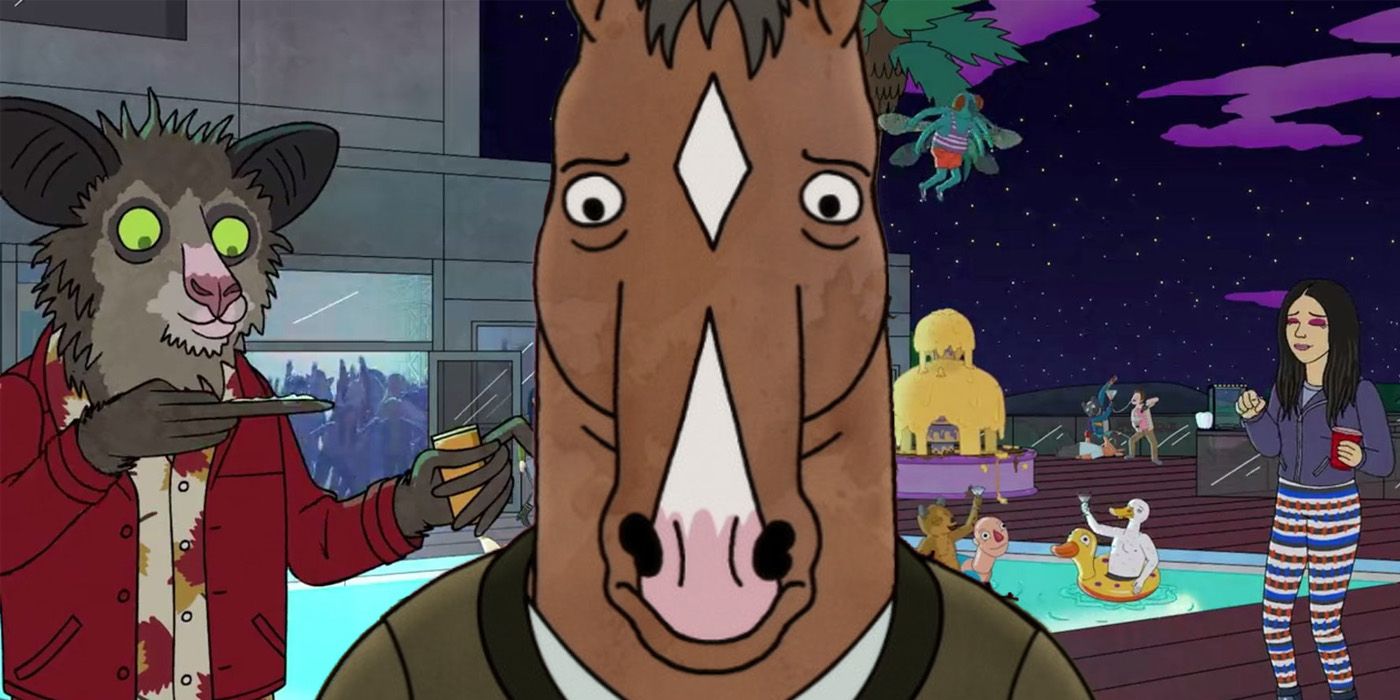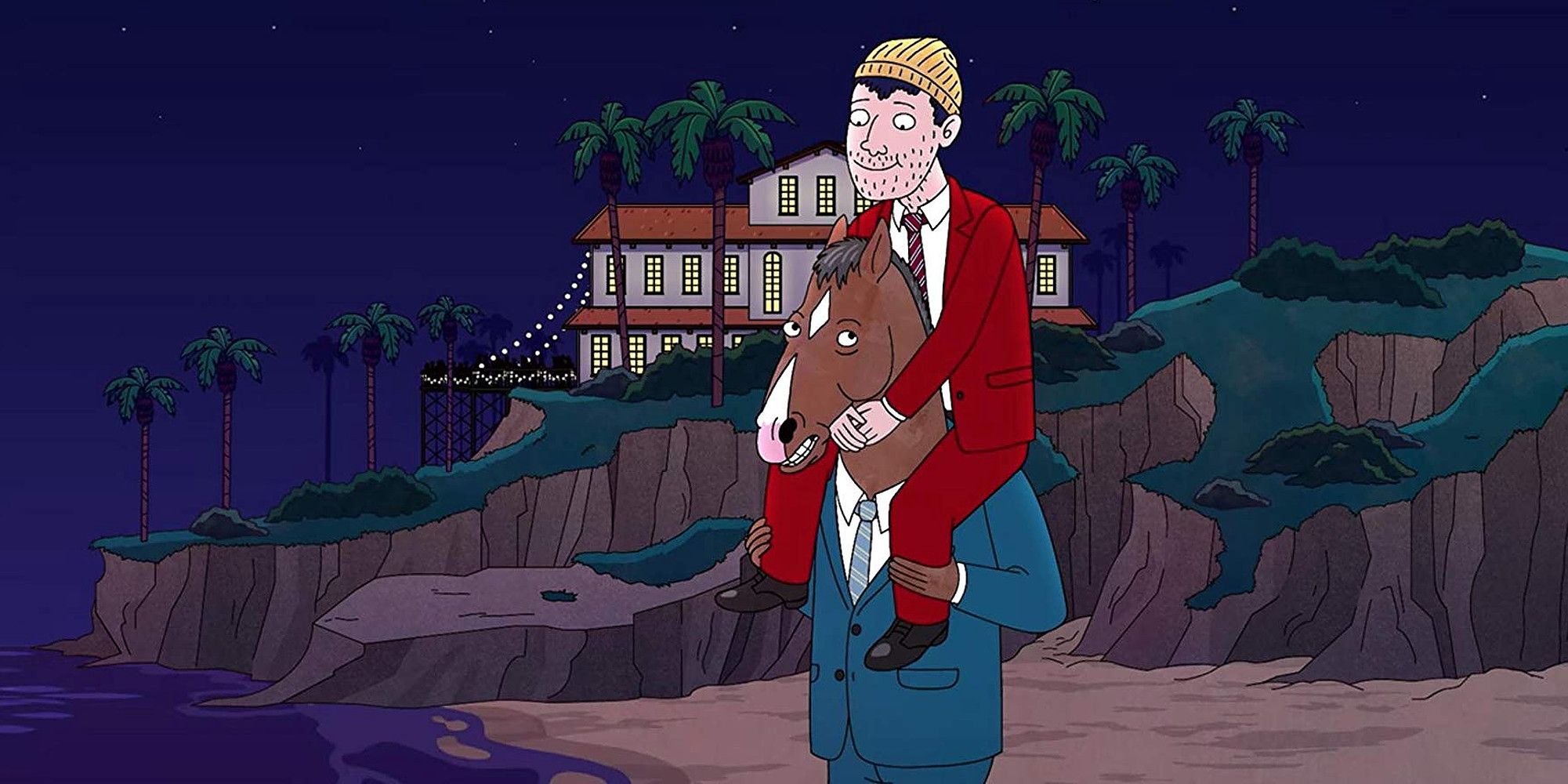
Bojack Horseman might seem a bit outlandish and goofy on the surface, but there is actually a reason for the animated talking animals. Plenty of shows discuss the complexities of show business, like Barry and 30 Rock, or deal with mental illness and sexuality, such as Euphoria and This is Us. But all of those shows have real people, not a talking horse, as the main character.
Bojack Horseman, created by Raphael Bob-Waksberg, follows a washed-up actor who is now struggling to navigate his next chapter in Hollywood - er, Hollywoo. The natural assumption at first is that this is going to be just another comedy with the added element of animal jokes, but the audience quickly learns that it is so much more than that. The show dives headfirst into discussions about depression, anxiety, sexuality, race, the Time’s Up and #MeToo movement, and so much more. Because it is a show with countless sight gags, animal puns, and silly premises, it can go where other shows might not be able to, while still maintaining a mix of comedy and drama.
Speaking to NPR, Bob-Waksberg explained that the bizarre world of humans casually interacting with anthropomorphic animals was important for keeping some levity in BoJack Horseman even when it descended to its darkest places:
“One thing we’ve really found is that it is a very silly cartoon universe, but it can also, I think, maybe because of that, go to some very sincere, dark, melancholy and even tragic places. Because it’s animated and it’s like a horse and it’s bright and colorful, it just takes on a different feel. And you can kind of sneak attack into sadness in some fun, surprising ways.”
With the exception of Todd Chavez, played by Aaron Paul, Sara Lynn, played by Kristen Schaal, and Diane Ngyuen, controversially played by Alison Brie, every other main character in BoJack Horseman is an animal. All three human characters all potentially have something relatable for audience members, Todd coming to grips with being asexual, Sara Lynn struggling with substance abuse, and Diane dealing with depression. However, it is the non-human characters that might be easier for the audience to connect to.

Because Princess Carolyn does not look like a human but is instead a cat, it could be easy for a new mother to put themselves into her shoes when dealing with juggling the responsibilities of a newborn. The same could be said about Mr. Peanutbutter, the golden retriever, and how his maturity issues impact his relationships. Bojack has a plethora of issues, from alcoholism to his refusal to get close to people, but him being something as abstract as a horse actually makes it easier for people to see themselves in him. This is something Bob-Waksberg had in mind when creating the show, as he explained to Vulture:
"People project themselves onto him more easily because he is not a person, he is a horse somehow. If you see Will Arnett in a show, you think, 'Well, that’s Will Arnett, that’s not me.' But seeing a horse somehow feels more universal, or it feels more like, 'That could be me.'"
Raphael Bob-Waksberg took a risk by going with animals instead of people. He could have told many of the same stories if Bojack was a human instead of a horse - without the countless animal puns of course. However, it was precisely that decision that made Bojack Horseman into what it was. For a show that could have been just like any other sitcom, it turned into so much more because of the world Bob-Waksberg, illustrator Lisa Hanawalt, and the rest of the Bojack Horseman team created where fans felt an actual connection and empathy with talking animals.
from ScreenRant - Feed https://ift.tt/3gnwTT7


0 Comments